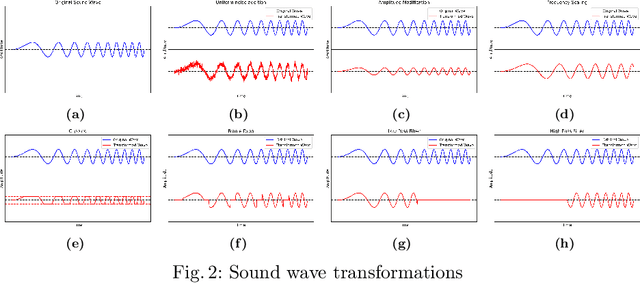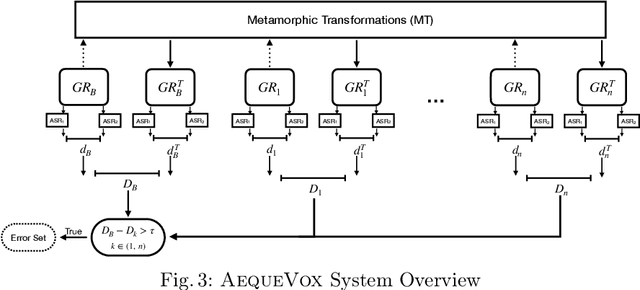AequeVox: Automated Fairness Testing of Speech Recognition Systems
Paper and Code
Oct 19, 2021



Automatic Speech Recognition (ASR) systems have become ubiquitous. They can be found in a variety of form factors and are increasingly important in our daily lives. As such, ensuring that these systems are equitable to different subgroups of the population is crucial. In this paper, we introduce, AequeVox, an automated testing framework for evaluating the fairness of ASR systems. AequeVox simulates different environments to assess the effectiveness of ASR systems for different populations. In addition, we investigate whether the chosen simulations are comprehensible to humans. We further propose a fault localization technique capable of identifying words that are not robust to these varying environments. Both components of AequeVox are able to operate in the absence of ground truth data. We evaluated AequeVox on speech from four different datasets using three different commercial ASRs. Our experiments reveal that non-native English, female and Nigerian English speakers generate 109%, 528.5% and 156.9% more errors, on average than native English, male and UK Midlands speakers, respectively. Our user study also reveals that 82.9% of the simulations (employed through speech transformations) had a comprehensibility rating above seven (out of ten), with the lowest rating being 6.78. This further validates the fairness violations discovered by AequeVox. Finally, we show that the non-robust words, as predicted by the fault localization technique embodied in AequeVox, show 223.8% more errors than the predicted robust words across all ASRs.
 Add to Chrome
Add to Chrome Add to Firefox
Add to Firefox Add to Edge
Add to Edge